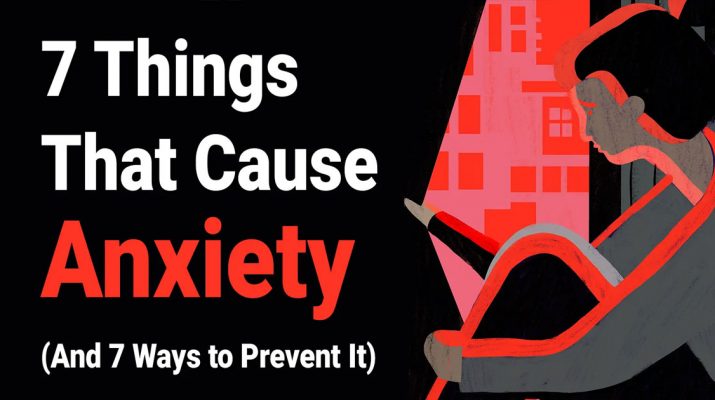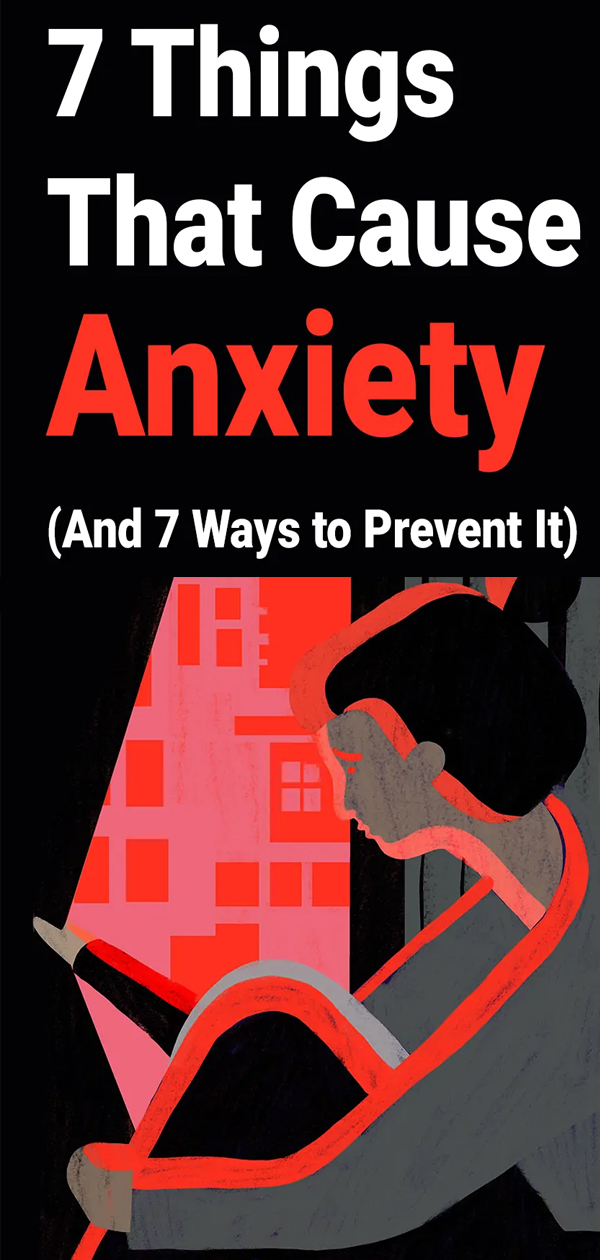In today’s world of stress and fast-paced lives, anxiety is one of the most common mental health conditions that most young people suffer from. Many anxiety sufferers feel that they should hide their condition out of fear of judgment from their friends and coworkers, which only adds to the existing mental health stigma in society.
But what are the causes of anxiety? Researchers describe a network of causes, which range from personal to social. Many times, anxiety is caused by different stress factors and they’re not always as manageable as we like to imagine.
Furthermore, many people ignore the physical aspects of anxiety – which can be debilitating and restrict someone from effectively doing their work. However, with targeted therapy and intervention by an experienced mental health professional, all anxiety disorders can be controlled and managed successfully.
Those who say that positive thinking is all it takes to eliminate anxiety couldn’t be more wrong. Here are some of the most common causes of anxiety and the best ways of managing them.
Here Are 7 Things That Cause Anxiety And Ways To Prevent It
“If you don’t think your anxiety, depression, sadness, and stress impact your physical health, think again. All of these emotions trigger chemical reactions in your body, which can lead to inflammation and a weakened immune system. Learn how to cope, sweet friend. There will always be dark days.” – Kris Carr
1. Skipping Meals
Nutrition is very important in managing a healthy mind and a healthy body. If you skip meals, you’ll often find that you feel anxious for no specific reason. That’s because your brain isn’t getting enough sustenance and it is struggling to function. The way to combat this is to create (and follow) a balanced, healthy diet plan that will carry you through the day.
Many people find that bullet journaling is a great way to plan your meals and ensure that you’re getting all the calories you need every day. Snack on healthy things and keep your sugar intake low, to keep at bay ingredients that might make you feel hyperactive and nervous.
2. Public Speaking
This commonly causes anxiety for many people – especially who already suffer from the condition. People with anxiety hate public speaking, whether it’s in a meeting with their team or at a presentation in front of hundreds of people. Often, our jobs make it so that public speaking is inevitable. In that case, it can very easily trigger an anxiety response.
To manage this, make sure to read as many self-help guides as you can. Rehearse your speech and presentation and, if you can, run it past your boss first – the positive reinforcement will make all the difference.
3. Caffeine
As much as you think you might not be able to live without your morning cup of coffee, the reality is that most people consume too much coffee and that may trigger their anxiety symptoms. Panic disorder and anxiety disorder, in particular, are very sensitive to caffeine. Because coffee is pure, unadulterated caffeine, it’s the worst out of all the caffeinated drinks.
When you can, try to change up your caffeinated drinks to their decaf option, or switch to something healthier like juice or water. You’ll notice the difference straight away.
4. Certain Medications
Of course, that doesn’t go for all medications, but some may trigger anxiety symptoms – and we’re not talking prescription meds, but over the counter meds. Weight-loss medications, birth control, and flu medicine have all been identified as anxiety-inducing substances.
The active ingredients in most commercial medications of that type make you feel unwell, which is sure to heighten your anxiety. Talk to your doctor about the medications you take and ask for a better alternative if you find your anxiety symptoms are getting difficult to manage.
5. Stress
In the contemporary world, we all live in a very high-stress environment. Missing your bus (or train), having a bad day at work, hearing bad news on the TV can all add up to a horrible weight of stress. Furthermore, stress can encourage habits such as increased alcohol intake, insomnia, and meal-skipping, which will only make your anxiety much worse.
The way to deal with this is to seek help with healthy stress management. Therapy and counseling can be very useful in helping you cope with stress, as well as mindfulness exercises and meditation in group exercises such as yoga.
6. Money Issues
Debt or feeling like you constantly have no money to sustain yourself on a day-to-day base is one of the most common causes of anxiety these days, especially among young people. Those can also be triggered by unexpected bills or suddenly losing your income due to job loss. When you’re stuck in a situation like that, you feel hopeless and as if there’s no way out.
The best thing to do at that moment is to seek help. There are many financial advisors who can help you manage your finances and figure out how to save money more efficiently.
7. Personal Triggers
Those are the most difficult causes of anxiety to identify. A lot of people associate smells, places, or sounds with bad memories. While this is a common symptom of PTSD, it can also trigger an anxiety attack. It takes a lot of time to identify and then learn how to overcome those personal triggers. Visiting a therapist may be very beneficial for this.
They will have strategies and exercises you can do to slowly get over these issues. Alternatively, try finding some self-help material online or speak to someone who has had the same experience. Sometimes all we need is the comfort of knowing someone understands.
Final Thoughts
Anxiety can be a debilitating condition that affects many people in their day-to-day lives. If you know someone who suffers from anxiety, or you do yourself, remember to be kind and patient, both with others’ and with your own condition. Getting over anxiety takes time and effort. Sometimes all you can do is dive headfirst into something new and face your fears just to see that the worst-case scenario won’t happen.
If you feel like everything is hopeless, stay positive – bad slumps happen to anyone in life. The main thing is to know that what comes afterward can only be better.


